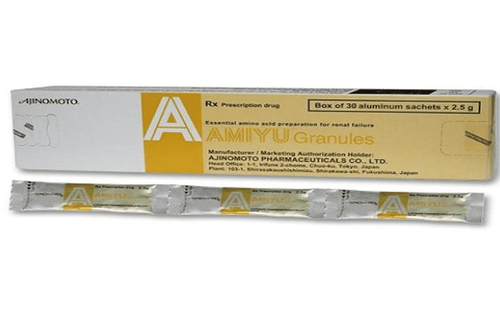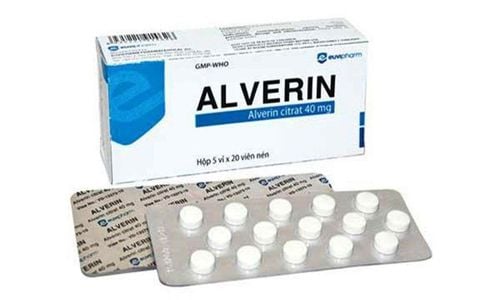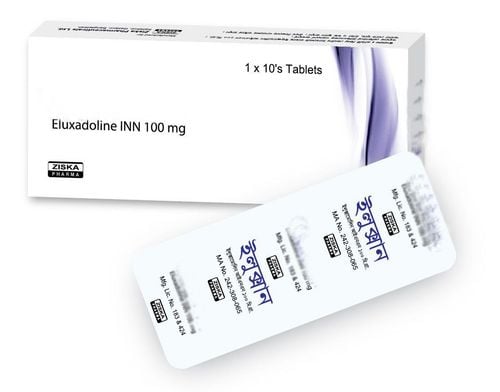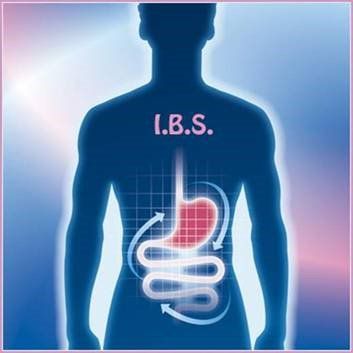This is an automatically translated article.
Posted by Master, Doctor Mai Vien Phuong - Department of Examination & Internal Medicine - Vinmec Central Park International General Hospital
Between 3 - 20% of Americans experience symptoms of irritable bowel syndrome (IBS). This condition affects women more than men. Some people with Irritable Bowel Syndrome have minor symptoms. For others, however, the symptoms are significant and disrupt daily life.
1. What is irritable bowel syndrome?
Irritable bowel syndrome is also known as spastic colon, irritable colon, mucous colitis, and spastic colitis. This is a separate condition from inflammatory bowel disease and is not related to other bowel conditions. Irritable bowel syndrome is a group of intestinal symptoms that often occur together. Symptoms vary in severity and duration from person to person. However, they last for at least three months for at least three days per month.
Irritable bowel syndrome can cause intestinal damage in some cases. However, that is not common.
Irritable bowel syndrome does not increase your risk of gastrointestinal cancer, but it can still significantly affect your life.
2. Irritable Bowel Syndrome Symptoms
Irritable bowel syndrome symptoms often include:
Abdominal cramps Abdominal pain Bloating and bloating Constipation Diarrhea It is not uncommon for people with IBS to experience episodes of constipation and diarrhea flow . Symptoms like bloating and gas usually go away after you have a bowel movement.
Irritable bowel syndrome symptoms are not always persistent. They can settle, only to come back. However, some people have persistent symptoms.

3. Should you use L-Glutamine for irritable bowel syndrome and what is L-glutamine?
L-glutamine, or just glutamine, is an amino acid. Amino acids are nutrients that help synthesize proteins in the human body for nutrition. They can be found in protein-rich foods, including both plants and animals. In turn, protein is an essential nutrient for good health.
L-glutamine is one of 20 different essential and non-essential amino acids that make protein. Essential amino acids can only be obtained through food, while nonessential amino acids, such as L-glutamine, are produced by the body. Under normal conditions, your body can produce enough L-glutamine to meet most of its needs.
Can L-glutamine help with IBS?
L-glutamine may help treat irritable bowel syndrome (IBS). The tissues in the gut use this amino acid as a fuel source to function properly. L-glutamine also has a role in maintaining proper barriers in the gut. IBS is one of the most common intestinal disorders.
Symptoms of IBS may include:
Bloating Constipation Cramping Diarrhea General Irregularity Chronic Abdominal Pain White mucus in stool L-glutamine may help people who experience these or other symptoms frequently. who have received a diagnosis of IBS. In some cases, it is believed that IBS itself may be the result of an L-glutamine deficiency.
L-glutamine deficiency can occur for a number of reasons:
Shock Trauma Major infection Vigorous exercise Radiation treatment Chemotherapy Significant stress

Insufficient consumption of L-glutamine can also lower your levels. In rarer cases, it can be due to an immune disorder, like HIV or AIDS.
L-glutamine is already produced by the body but can also be taken in powder or supplement form, available from stores or by prescription. In addition, it can also be obtained through your diet. Food sources of glutamine include:
Chicken Fish Dairy Products Tofu Cabbage Spinach Radish Peas Lentils Beans Direct supplementation L-glutamine may be recommended to correct any deficiency especially during times of severe stress and serious illness.
Talk to your doctor about L-glutamine as a possibility to improve your IBS problems. If you think you have a deficiency due to health or other problems - and have IBS - L-glutamine can help.
What studies support the treatment of IBS with L-glutamine?
To date, there are no studies or studies that directly confirm that L-glutamine improves IBS. A government study was proposed in 2010, but has not been completed. Other studies have dealt with this topic, but are dated and no longer relevant.
The idea that L-glutamine improves IBS emerged in a recent review. The studies reviewed concluded that L-glutamine improves intestinal or intestinal permeability. This protects against unwanted toxins entering the digestive system.
It is believed that IBS itself may be caused by a lack of intestinal permeability, especially in diarrhea-predominant IBS. This suggests that L-glutamine has the potential to improve IBS, although more research is needed to know for sure.
What should I pay attention to when taking L-glutamine?
In general, taking L-glutamine is safe. However, make sure to stick to the recommended dosage. Drinking too much can be bad for your health.
For IBS, the dose your doctor recommends will depend on your specific case. Usually, the maximum dose is 30 grams per day. This is broken down into 5 grams taken six times per day, according to the Mayo Clinic).
Side effects may occur if you are allergic to L-glutamine or if you take too much. Some effects include, nausea, vomiting, joint pain, urticaria.
If any of these or any other side effects start to occur, seek medical attention immediately.

Some studies show that certain types of cancer cells rapidly increase in response to L-glutamine.
Tumor cells are known to take L-glutamine as their preferred fuel source. For this reason, people with cancer, or at high risk for cancer, should avoid supplements. More research is needed to see how L-glutamine and specific cancers interact.
Bottom Line
Taking L-glutamine is a safe and possibly helpful remedy for IBS symptoms. Talk to your doctor about it before you start taking it.
Also, be sure to follow their directions and dosage instructions carefully. If you do, you may find that you can tolerate L-glutamine well, while also experiencing some of its potential benefits for IBS.
Currently, Vinmec International General Hospital is a prestigious address trusted by many patients in performing diagnostic techniques for digestive diseases, short bowel syndrome, chronic diarrhea, Crohn's disease , misplaced gastric mucosa in the esophagus, reflux esophagitis...
Vinmec Hospital with modern facilities and equipment and a team of experienced experts, always dedicated to treatment patients, customers can rest assured with gastroscopy and esophagoscopy services at Vinmec International General Hospital.
Please dial HOTLINE for more information or register for an appointment HERE. Download MyVinmec app to make appointments faster and to manage your bookings easily.
ReferencesGrundmann O, et al. (2010). Irritable bowel syndrome: epidemiology, diagnosis and treatment: an update for health-care practitioners. DOI: 10.1111/j.1440-1746.2009.06120.x Houghton LA, et al. (2002). The menstrual cycle affects rectal sensitivity in patients with irritable bowel syndrome but not healthy volunteers. DOI: 10.1136/gut.50.4.471 Irritable bowel syndrome . (2016). ncbi.nlm.nih.gov/pubmedhealth/PMH0072600/ Irritable bowel syndrome. (2015). niddk.nih.gov/health-information/digestive-diseases/irritable-bowel-syndrome














